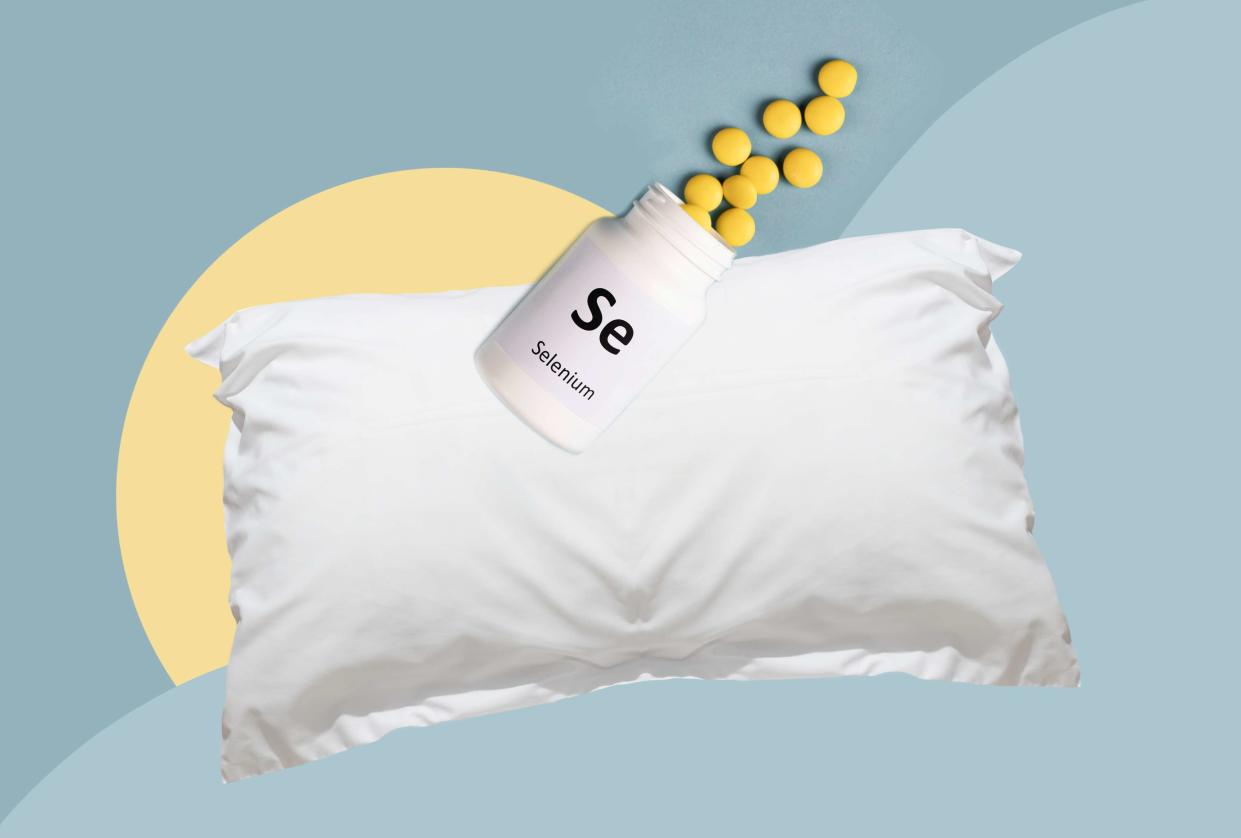Should You Take Selenium Supplement for Better Sleep?

Fact checked by Nick Blackmer
Found in soil and protein foods, selenium is an essential mineral that regulates body functions.
A new study in China suggests that selenium may promote sleep duration, especially in people who have high BMI.
Experts say most Americans get enough selenium from their diet and consuming too much selenium can be toxic.
A recent study in China suggested that a diet rich in selenium may promote sleep duration.
Selenium is a trace mineral, which means the body only needs small amounts of it. It’s thought to act as an antioxidant that can help regulate metabolism and the synthesis of hormones. This mineral is naturally found in everyday foods and soil.
While selenium is an essential nutrient, not much research has proven its association with sleep quality.
For the study conducted in China, researchers collected self-reported data from approximately 17,000 people between 2004 and 2011 about their food intake and sleep duration.
They found that the majority of participants consumed less than China’s recommended amount of selenium intake, which is 50 micrograms daily. But the average intake was still associated with the ideal sleep duration—between seven and nine hours per night. For people who had a high BMI though, high selenium consumption seemed even more favorable for their sleep.
Marie-Pierre St-Onge, PhD, an associate professor at Columbia University’s Institute of Human Nutrition, said a deficiency in selenium might have contributed to poor sleep. However, she noted the study group with the highest amount of selenium intake was simply taking the recommended amount.
“They were just making it into the adequate intake category,” St-Onge told Verywell. “I think this study really should say: You shouldn’t be deficient in selenium.”
Selenium deficiency is very rare in the United States since North American soil is generally rich in selenium. But people who live in low-selenium regions like China, Tibet, and Siberia and eat a vegetarian or vegan diet are more at risk of selenium deficiency. Severe selenium deficiency could lead to certain illnesses such as Kashin-Beck disease, a form of osteoarthritis.
The recommended amount of daily selenium intake is 55 mcg for U.S. adults. People who are pregnant and lactating need about 60 and 70 mcg daily, respectively. Many Americans can meet this standard by eating whole grains, protein foods, and a variety of vegetables.
Should You Take Any Selenium Supplements?
In addition to the new study, another research published earlier this year also suggested that having higher levels of both zinc and selenium in the blood was associated with fewer self-reported sleep disorders. A 2013 study found that low intakes of certain nutrients including selenium, vitamin C, lutein, and zeaxanthin were associated with short sleep durations.
However, these findings don’t mean that you should use selenium supplements as a sleep aid. Consuming too much selenium can be toxic, causing symptoms from stomach pain and garlic breath to respiratory distress and hair loss. Severe cases of selenium poisoning may lead to kidney failure and death.
Michael Grandner, PhD, director of the sleep and health research program at the University of Arizona who co-authored the 2013 study on nutrient intake and sleep, said that it’s still unclear whether selenium has a positive impact on sleep.
“Perhaps these nutrients positively influence sleep, or maybe better sleep leads you to have healthier diets with more of these nutrients, or maybe they overlap for another reason,” Grandner told Verywell in an email. “We don’t yet know.”
Limited research has suggested that selenium may be associated with sleep quality, but this doesn’t mean you should use selenium supplements as a sleep aid. Most U.S. adults can get enough selenium through their regular diet. Selenium toxicity is rare, but consuming too much of this mineral can lead to a range of health problems.

